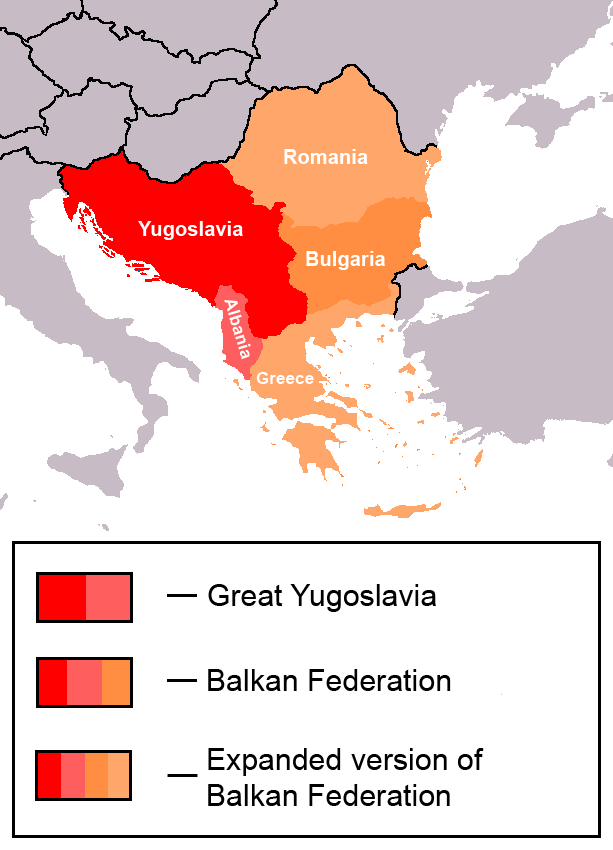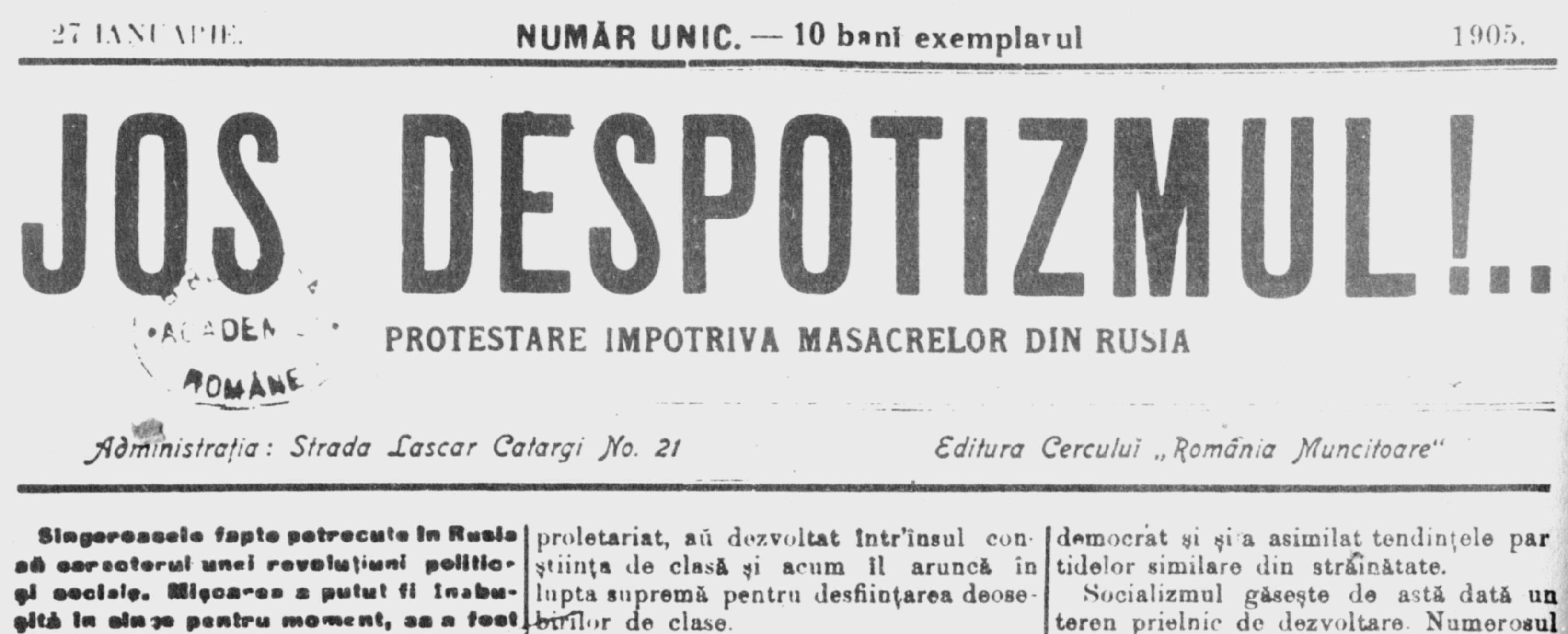|
Executive Committee Of The Communist International
The Executive Committee of the Communist International, commonly known by its acronym, ECCI (Russian acronym ИККИ), was the governing authority of the Comintern between the World Congresses of that body. The ECCI was established by the Founding Congress of the Comintern in 1919 and was dissolved with the rest of the Comintern in May 1943. Organizational history Establishment The Communist International was established at a gathering convened in Moscow at the behest of the Russian Communist Party (Bolsheviks). As early as December 24, 1918, a radio appeal had been issued by the ruling party of Soviet Russia calling on "communists of all countries" to boycott any attempts of reformists to reestablish the Second International, but to instead "rally around the revolutionary Third International." The formal call for a conference of revolutionary socialist political parties and radical trade unions espousing revolutionary industrial unionism had been issued on January 24, 1919, ... [...More Info...] [...Related Items...] OR: [Wikipedia] [Google] [Baidu] |
Socialist Labor Party Of America
The Socialist Labor Party (SLP)"The name of this organization shall be Socialist Labor Party". Art. I, Sec. 1 of thadopted at the Eleventh National Convention (New York, July 1904; amended at the National Conventions 1908, 1912, 1916, 1920, 1924, 1928, 1932, 1936, 1940, 1944, 1948, 1952, 1956, 1960, 1964, 1968, 1972, 1976, 1977, 1978, 1979, 1980, 1981, 1982, 1983, 1984, 1987, 1989, 1991, 1993, 2001, 2005 and 2007) (cited February 18, 2016). is the first socialist political party in the United States, established in 1876. Originally known as the Workingmen's Party of the United States, the party changed its name in 1877 to Socialistic Labor Party [...More Info...] [...Related Items...] OR: [Wikipedia] [Google] [Baidu] |
Scandinavia
Scandinavia; Sámi languages: /. ( ) is a subregion in Northern Europe, with strong historical, cultural, and linguistic ties between its constituent peoples. In English usage, ''Scandinavia'' most commonly refers to Denmark, Norway, and Sweden. It can sometimes also refer more narrowly to the Scandinavian Peninsula (which excludes Denmark but includes part of Finland), or more broadly to include all of Finland, Iceland, and the Faroe Islands. The geography of the region is varied, from the Norwegian fjords in the west and Scandinavian mountains covering parts of Norway and Sweden, to the low and flat areas of Denmark in the south, as well as archipelagos and lakes in the east. Most of the population in the region live in the more temperate southern regions, with the northern parts having long, cold, winters. The region became notable during the Viking Age, when Scandinavian peoples participated in large scale raiding, conquest, colonization and trading mostly throughout ... [...More Info...] [...Related Items...] OR: [Wikipedia] [Google] [Baidu] |
Austria
Austria, , bar, Östareich officially the Republic of Austria, is a country in the southern part of Central Europe, lying in the Eastern Alps. It is a federation of nine states, one of which is the capital, Vienna, the most populous city and state. A landlocked country, Austria is bordered by Germany to the northwest, the Czech Republic to the north, Slovakia to the northeast, Hungary to the east, Slovenia and Italy to the south, and Switzerland and Liechtenstein to the west. The country occupies an area of and has a population of 9 million. Austria emerged from the remnants of the Eastern and Hungarian March at the end of the first millennium. Originally a margraviate of Bavaria, it developed into a duchy of the Holy Roman Empire in 1156 and was later made an archduchy in 1453. In the 16th century, Vienna began serving as the empire's administrative capital and Austria thus became the heartland of the Habsburg monarchy. After the dissolution of the H ... [...More Info...] [...Related Items...] OR: [Wikipedia] [Google] [Baidu] |
Germany
Germany,, officially the Federal Republic of Germany, is a country in Central Europe. It is the second most populous country in Europe after Russia, and the most populous member state of the European Union. Germany is situated between the Baltic and North seas to the north, and the Alps to the south; it covers an area of , with a population of almost 84 million within its 16 constituent states. Germany borders Denmark to the north, Poland and the Czech Republic to the east, Austria and Switzerland to the south, and France, Luxembourg, Belgium, and the Netherlands to the west. The nation's capital and most populous city is Berlin and its financial centre is Frankfurt; the largest urban area is the Ruhr. Various Germanic tribes have inhabited the northern parts of modern Germany since classical antiquity. A region named Germania was documented before AD 100. In 962, the Kingdom of Germany formed the bulk of the Holy Roman Empire. During the 16th ce ... [...More Info...] [...Related Items...] OR: [Wikipedia] [Google] [Baidu] |
Moscow
Moscow ( , US chiefly ; rus, links=no, Москва, r=Moskva, p=mɐskˈva, a=Москва.ogg) is the capital and largest city of Russia. The city stands on the Moskva River in Central Russia, with a population estimated at 13.0 million residents within the city limits, over 17 million residents in the urban area, and over 21.5 million residents in the metropolitan area. The city covers an area of , while the urban area covers , and the metropolitan area covers over . Moscow is among the world's largest cities; being the most populous city entirely in Europe, the largest urban and metropolitan area in Europe, and the largest city by land area on the European continent. First documented in 1147, Moscow grew to become a prosperous and powerful city that served as the capital of the Grand Duchy that bears its name. When the Grand Duchy of Moscow evolved into the Tsardom of Russia, Moscow remained the political and economic center for most of the Tsardom's history. Whe ... [...More Info...] [...Related Items...] OR: [Wikipedia] [Google] [Baidu] |
Fritz Platten
Fritz Platten (8 July 1883 – 22 April 1942) was a Swiss communist politician and one of the founders of the Communist International. Early life Platten was born in the village of Tablat, now part of St. Gallen, on 8 July 1883, to and Old Catholic family. He was the son of Maria Strässle and Peter Platten, a German carpenter and innkeeper. Having moved to Zürich in 1892, he worked as an apprentice locksmith from 1898 to 1902. After working various jobs, Platten took part in the First Russian Revolution in Riga, in 1906, for which he was jailed until escaping to Switzerland in 1908. Career Platten began his political career as a member of the Social Democratic Party of Switzerland, of which he was secretary between 1915 and 1919. In the 1917 federal election he was elected member the National Council for the canton of Zürich, where he served until 1923. In 1921, along with other dissidents from the left-wing of the Social Democrats, Platten was one of the founding members ... [...More Info...] [...Related Items...] OR: [Wikipedia] [Google] [Baidu] |
Switzerland
). Swiss law does not designate a ''capital'' as such, but the federal parliament and government are installed in Bern, while other federal institutions, such as the federal courts, are in other cities (Bellinzona, Lausanne, Luzern, Neuchâtel, St. Gallen a.o.). , coordinates = , largest_city = Zürich , official_languages = , englishmotto = "One for all, all for one" , religion_year = 2020 , religion_ref = , religion = , demonym = , german: Schweizer/Schweizerin, french: Suisse/Suissesse, it, svizzero/svizzera or , rm, Svizzer/Svizra , government_type = Federal assembly-independent directorial republic with elements of a direct democracy , leader_title1 = Federal Council , leader_name1 = , leader_title2 = , leader_name2 = Walter Thurnherr , legislature = Federal Assembly , upper_house = Council of ... [...More Info...] [...Related Items...] OR: [Wikipedia] [Google] [Baidu] |
Standing Committee
A committee or commission is a body of one or more persons subordinate to a deliberative assembly. A committee is not itself considered to be a form of assembly. Usually, the assembly sends matters into a committee as a way to explore them more fully than would be possible if the assembly itself were considering them. Committees may have different functions and their types of work differ depending on the type of the organization and its needs. A member of a legislature may be delegated a committee assignment, which gives them the right to serve on a certain committee. Purpose A deliberative assembly may form a committee (or "commission") consisting of one or more persons to assist with the work of the assembly. For larger organizations, much work is done in committees. Committees can be a way to formally draw together people of relevant expertise from different parts of an organization who otherwise would not have a good way to share information and coordinate actions. They may ... [...More Info...] [...Related Items...] OR: [Wikipedia] [Google] [Baidu] |
Balkan Socialist Federation
The Balkan Federation project was a left-wing political movement to create a country in the Balkans by combining Yugoslavia, Albania, Greece, Bulgaria, Romania and Turkey. The concept of a Balkan federation emerged in the late 19th century from among left political forces in the region. The central aim was to establish a new political unity: a common federal republic unifying the Balkan Peninsula on the basis of internationalism, socialism, social solidarity, and economic equality. The underlying vision was that despite differences among the Balkan peoples the historical need for emancipation was a common basis for unification. This political concept went through three phases in its development. In the first phase the idea was articulated as a response to the collapse of the Ottoman Empire at the beginning of the 20th century. In the second phase, mostly through the interwar period (1919–1936), the idea of the Balkan federation was taken up by the Balkan Communist parties. The ... [...More Info...] [...Related Items...] OR: [Wikipedia] [Google] [Baidu] |
Romanian People
The Romanians ( ro, români, ; dated exonym ''Vlachs'') are a Romance-speaking ethnic group. Sharing a common Romanian culture and ancestry, and speaking the Romanian language, they live primarily in Romania and Moldova. The 2011 Romanian census found that just under 89% of Romania's citizens identified themselves as ethnic Romanians. In one interpretation of the 1989 census results in Moldova, the majority of Moldovans were counted as ethnic Romanians.''Ethnic Groups Worldwide: A Ready Reference Handbook By'' David Levinson, Published 1998 – Greenwood Publishing Group.At the time of the 1989 census, Moldova's total population was 4,335,400. The largest nationality in the republic, ethnic Romanians, numbered 2,795,000 persons, accounting for 64.5 percent of the population. Source U.S. Library of Congress "however it is one interpretation of census data results. The subject of Moldovan vs Romanian ethnicity touches upon the sensitive topic ofMoldova's national identi ... [...More Info...] [...Related Items...] OR: [Wikipedia] [Google] [Baidu] |
Christian Rakovsky
Christian Georgievich Rakovsky (russian: Христиа́н Гео́ргиевич Рако́вский; bg, Кръстьо Георги́ев Рако́вски; – September 11, 1941) was a Bulgarian-born socialist revolutionary, a Bolshevik politician and Soviet diplomat and statesman; he was also noted as a journalist, physician, and essayist. Rakovsky's political career took him throughout the Balkans and into France and Imperial Russia; for part of his life, he was also a Romanian citizen. A lifelong collaborator of Leon Trotsky, he was a prominent activist of the Second International, involved in politics with the Bulgarian Workers' Social Democratic Party, Romanian Social Democratic Party, and the Russian Social Democratic Labour Party. Rakovsky was expelled at different times from various countries as a result of his activities, and, during World War I, became a founding member of the Revolutionary Balkan Social Democratic Labor Federation while helping to organize ... [...More Info...] [...Related Items...] OR: [Wikipedia] [Google] [Baidu] |





